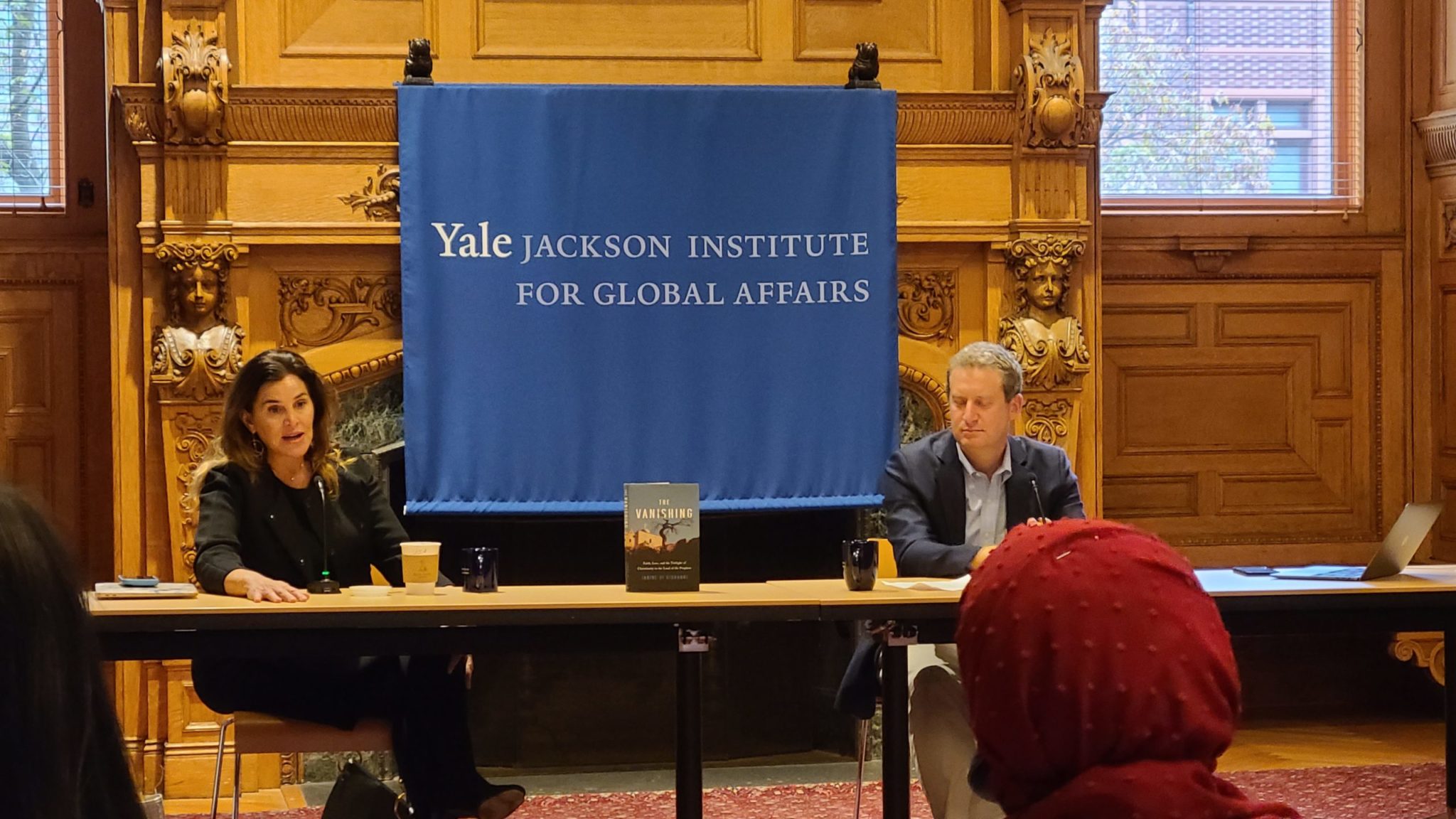Jackson Senior Fellow Di Giovanni gives talk on Christian persecution in the Middle East
Di Giovanni discussed religion, community and persecution in a talk given at the Jackson Institute for Global Affairs.

William Porayouw, Contributing Photographer
On Tuesday, Jackson Senior Fellow Janine di Giovanni gave a talk on her latest book release, “The Vanishing: Faith — Loss and the Twilight of Christianity in the Land of the Prophets,” at the Jackson Institute for Global Affairs.
Talk moderator and Executive Director of International Security Studies Ted Wittenstein introduced di Giovanni as an award winning author, journalist and foreign policy columnist. He also noted that she is the recipient of the Guggenheim Fellowship, a prestigious award which enabled her to travel to and work in Gaza, Iraq, Syria and Egypt.
“[Di Giovanni] has dedicated her life to courageous work in war zones, conflict and humanitarian crises around the world,” Wittenstein added. “She has reported extensively on the front line, as a firsthand witness, in the Middle East, the Balkans, across Africa,and in South, South East and Central Asia.”
Di Giovanni began the conversation by describing the intersection of conflict and religion that she has observed throughout her more than 30 years in the field. She said that many of the conflicts she has reported on — whether in Israel, Palestine, the Balkans, Bosnia or Kosovo — revolve around religion and faith.
However, di Giovanni also noted that in areas torn apart by religious conflict, religion was often the means by which community was preserved. She recounted a moving moment during her visit to Sarajevo on Christmas Eve, 1992.
“Bosnia was being ripped apart by nationalistic forces that wanted to say this is not a multicultural place,” she recalled. “And yet, it was. There were Catholics; there were Christian Orthodox; there were Jews, Muslims and all mixed.”
She explained that she was told there was going to be a midnight mass but that it could not be held at midnight because “the Serbs would then know, and then could target the church.”
After sending out a secret message, di Giovanni said the participants “came to receive communion, and then everyone sang ‘Silent Night.’”
Di Giovanni then described her visits to four ancient Christian communities — Palestine, Iraq, Syria and Egypt — which she highlights in “The Twilight.” Despite their roots, she claimed these communities all face some form of persecution or hostility that threatens their longevity.
One example of this persecution she discussed during the talk was in regards to Palestinian Christians living on the Gaza Strip — a group who, according to her, are highly educated yet unable to obtain stable jobs. She recounted a story about a young dentist who finished dental school in Gaza and protested the lack of employment opportunities for dental graduates like himself.
“They can’t find work, and yet they don’t want to leave because if they leave, they know they’ll be in exile forever,” she said. “They’re in a terrible situation.”
After the talk, Wittenstein commended di Giovanni’s grit in pursuit of her life’s work.
“It’s always a thrill to showcase the scholarship and teaching and research that our Senior Fellows do,” Wittenstein stated. “Janine di Giovanni has really done such great work in the Middle East and is a really exciting example of bringing both theory and practice into international relations.”
Wittenstein expressed excitement regarding the success of the hybrid event model, in-person and on Zoom, that the Jackson Institute is adopting.
He added that the Jackson Institute “feeds off” the enthusiasm of its students.
Audience member Gal Komem GRD ’22 found the talk “very interesting.” He mentioned that he enjoyed learning about the challenges these communities face and the coping mechanisms and means of preservation they have developed in response to adversity.
The Jackson Institute hosts events every week, including a discussion forum on Sino-Indian Affairs on Nov. 11.







